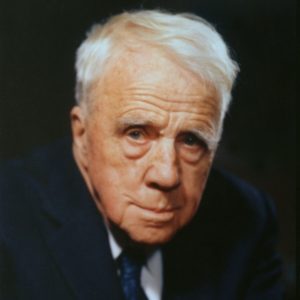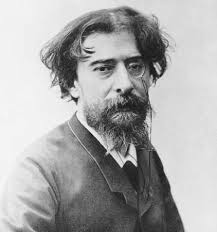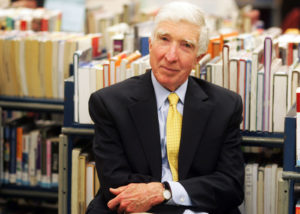We have decided to create the most comprehensive English Summary that will help students with learning and understanding.
Mirror Summary in English by Sylvia Plath
Mirror Summary in English
This poem explores the relationship that we have with truth, particularly the truth about ourselves.
In the first verse, Plath imagines the thoughts of a mirror, chosen because it is an object we all turn to in search of a kind of truth. It is presented as objective—’exact’ and without ‘preconceptions’, swallowing whatever it sees without a second thought, ‘unmisted by love or dislike’. The mirror is, it is at pains to point out that it is, ‘not cruel, only truthful’—but truth itself is cruel for human beings, and we turn away from it, presenting our backs to those mirrors that offer to show us the unbiased truth.
In the second verse, the mirror is replaced by the lake, something else into which humans have traditionally gazed into, in search of their own reflection. Plath presents us with a woman ‘searching the mirror’s reaches for what she really is’, but the figure cannot bear the truth she finds, and turns her back on it in favour of ‘those liars, the candles or the moon’, both images traditionally associated with romance. Yet we cannot live without knowing the reality about ourselves, even if what we find upsets us. So each morning the woman is back, even though it is only to cry and wring her hands at what she sees. To know the truth is torture, and yet we continue to torture ourselves.
What makes the poem particularly striking is the viewpoint Plath adopts—she writes as the mirror itself. This brings an added poignancy to this poem about isolation, the only person more lonely than the receiver of bad news is its bearer, perhaps. The mirror’s life is an unfulfilled one, it can do no more than ‘meditate on the opposite wall’, and even the dignity of the word ‘meditate’ is undermined by its object, a wall painted ‘pink, with speckles’. Throughout the poem, it is the mirror which meditates, which has hidden reaches, which has a heart and behaves ‘faithfully’.
But the woman ‘comes and goes . . . day after day’. She merely ‘rewards (it) with tears and an agitation of hands’, turning her back on it and yet unable to stay away, returning every morning to replace the darkness. The relationship between the mirror and the woman is evidently a complex one—they need each other, and yet cause each other pain, too.
In this poem, Plath—who committed suicide less than 18 months later—adopts the mirror’s viewpoint in order to explore her ambivalent feelings about herself. ‘Mirror’ juxtaposes images of love and cruelty, truth and dislike, flickering light and darkness. One minute the mirror is ‘a little god’, the next it is needy and alone. It longs to be loved and yet it is in the woman’s suffering, her ‘tears’ and ‘agitation’, that it receives what it calls a ‘reward’. Ahead lies a terrible future for the woman. The description of herself as a ‘terrible fish’—a cold and emotionless woman—rises to torture Sylvia Plath.
Mirror Summary Questions and Answers
Question 1.
On the basis of your understanding of the poem, answer the following questions by ticking the correct choice
a. When the mirror is being described as being ‘unmisted by love or dislike ’ we understand that the mirror is
(i) not misted
(ii) not prejudiced
(iii) has four angles
(iv) is silver in colour
Answer:
(ii) not prejudiced
b. The other word for‘contemplation’is ………….
(i) contempt
(ii) meditation
(iii) mediation
(iv) Thoughtful
c When the mirror says ‘it has no preconceptions ’ it means that:
(i) it reflects back an image objectively
(ii) it modifies an image as it reflects it
(iii) it beautifies an image as it reflects it
(iv) it gives a biased view of a person/object
d. The mirror has been called ‘a four-cornered god’ because:
(i) it is square shaped
(ii) like God it watches you unbiased andfair from all four angles
(iii) it reflects back all that it sees
(iv) it never stops reflecting
e. The ‘speckles’ refer to:
(i) a pink object
(ii) the opposite wall which has spots on it
(iii) a person with pink pimples
(iv) pink spots in general
Answer:
(ii) the opposite wall which has spots on it
f. The phrase ‘agitation of the hand’ suggests that the person is:
(i) very ill
(ii) very upset
(iii) very angry
(iv) very happy
Answer:
(ii) very upset
g. By saying ‘Now I am a lake ’ the narrator wants to show that:
(i) the poem is not only about external beauty but also the inside of a person
(ii) the lake can also reflect surfaces
(iii) the depth of the lake is important
(iv) the lake does not show as exact an image as a mirror *
Answer:
(ii) the lake can also reflect surfaces
Question 2.
Answer the following questions briefly
a. What is the poetic device used when the mirror says ‘I swallow ’?
Answer:
The poetic device used is personification. Like a person swallows food and chews upon it, the mirror takes in the image of a person and thinks about it.
b. How does the mirror usually pass its time?
Answer:
The one-dimensional mirror spends the entire day gazing at the wall on the opposite side and faithfully reproduces its colours and design until darkness supervenes or faces intrude.
c. What disturbs the mirror’s contemplation of the opposite wall?
Answer:
The mirror’s contemplation of the opposite wall is disturbed by the darkness that makes it impossible for the mirror to gaze at the opposite wall. Sometimes a person comes and stands in front of the mirror and the mirror cannot gaze at the opposite wall.
d. Why does the mirror appear to be a lake in the second stanza? What aspect of the mirror do you think is being referred to here?
Answer:
In the second stanza the mirror appears to be a lake. The difference between a lake and a mirror is that the lake is not ‘silver and exact’ like a mirror and it has more depth. The lake is a symbol for the private, hidden self. It shows that which society cannot see.
e. What is the woman searching for in the depths of the lake?
Answer:
The woman is looking into herself to see what she really is. She is searching for her private, hidden self. It is a side of her which society cannot see, but it is the truth which she knows about herself.
f. How does the narrator convey the fact that the woman looking at her reflection in the lake is deeply distressed?
Answer:
The woman is agitated. She wrings her hands in distress and then when she cannot bear the truth, she turns her back on it in favour of ‘those liars, the candles or the moon’, who soften the harsh edges.
g. What makes the woman start crying?
Answer:
The woman looks into the lake and sees she is ageing. She looks at her own reflection with loathing as she sees less and less of the young girl and more of the old woman. The rising of the ‘terrible fish’ refers to the aged woman whose skin is turning ugly. It also refers to the woman’s self-loathing as she considers herself unworthy of being loved. This makes her cry.
h. What do you think the ‘terrible fish ’ in the last line symbolizes? What is the poetic device used here?
Answer:
The terribly ugly fish rising towards her is the fear of aging that rises from the depths of her repressed mind. It is a sad, angered and emotionless woman at the end who comes to the realisation that one day, she will grow terribly old and die. It also symbolises the woman’s self-loathing and perception of herself as being incapable of loving and as cold as a fish. The poetic device used here is symbolism.
Question 3.
Read the given lines and answer the questions that follow by ticking the correct choice:
A woman bends over me,
Searching my reaches for what she really is.
Then she turns to those liars, the candles or the moon.
a. What is the woman bending over?
(i) the mirror
(ii) the lake
(iii) the opposite wall
(iv) the moon and the candles
Answer:
(ii) the lake
b. Why have the candles and the moon been called ‘liars ’?
(i) because they make people beautiful
(ii) they hide the blemishes of people with their soft light
(iii) they hide the blemishes and make people look beautiful in their soft glow
(iv) they can’t talk
Answer:
(ii) they hide the blemishes of people with their soft light
c. Why does she turn to them in spite of calling them ‘liars ’?
(i) the reality is too harsh for her to bear
(ii) she is desperately looking for someone to comfort her
(iii) she wants to be told that she is still beautiful
(iv) she can hide her signs of graying in their light
Answer:
(i) the reality is too harsh for her to bear






